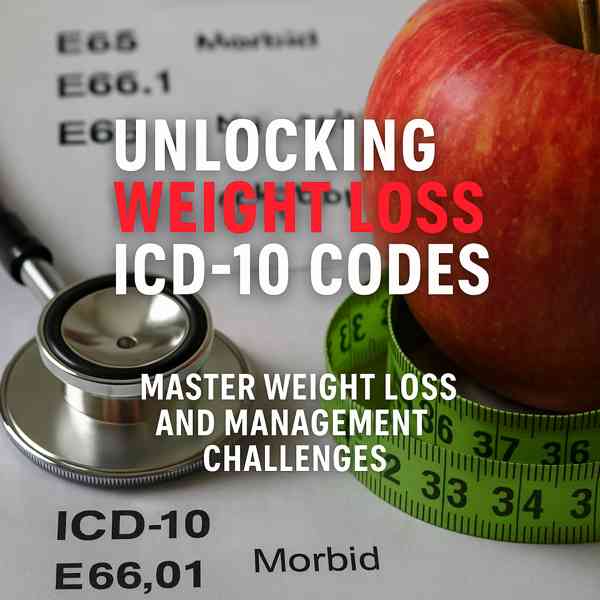Accurate ICD-10 Coding for Weight Loss
Accurate ICD-10 Coding for Weight Loss
Blog Article

Whether you’re a medical professional, billing specialist, or patient navigating claims, understanding weight loss ICD-10 codes is key.
In this article, we’ll break down what ICD-10 codes are used for weight loss, how to apply them, and what you should know for accurate recordkeeping.
Understanding ICD-10 for Weight Loss
ICD-10 stands for the International Classification of Diseases, 10th Revision.
Each diagnosis is assigned a unique code, which is used for:
- Insurance billing and reimbursement
- Tracking public health trends
- Communicating diagnoses between professionals
Which ICD-10 Codes Apply to Weight Loss?
Weight loss can be intentional or unintentional — and each situation has a specific ICD-10 code.
Key codes include:
- Used when weight loss is unexplained or unintentional
This code applies when a patient loses a significant amount of weight without trying, often due to illness.
- Used when weight loss is guided by professional support
Often applied in cases involving nutritional intervention or guidance.
- Indicates poor nutrition or unhealthy patterns impacting weight
- E66.9 – Obesity, Unspecified
- Applied in extreme undernutrition cases, often linked with weight loss
When to Use R63.4 for Weight Loss
Use R63.4 when:
- The patient reports significant, unintentional weight loss
- Weight loss is a primary symptom in evaluation
- Used as part of diagnostic workup
Avoiding Mistakes in Documentation
To avoid claim denials or coding errors:
- This determines whether R63.4 is appropriate
- Include context like depression, cancer, or malabsorption
- Use supplemental Z-codes for counseling or screenings
- Be sure they make sense in context
ICD-10 for Weight Management Programs
If you’re coding for a structured weight loss program or health coaching, consider using these Z-codes:
- For nutrition-based support
- Z76.89 – Person Encountering Health Services for Other Reasons
- Z13.21 – Encounter for Nutritional Screening
These codes obesity bmi 30 39.9 icd-10 can support insurance claims for wellness, prevention, and obesity treatment plans.
Ensure Documentation is Clear and Compliant
Using the right ICD-10 code for weight loss is fundamental for clear documentation and proper billing.
To summarize:
- Most common diagnosis for unknown causes
- Great for structured programs
- E-codes = Nutritional or medical malnutrition
When in doubt, document fully and consult with a certified coding professional. Report this page